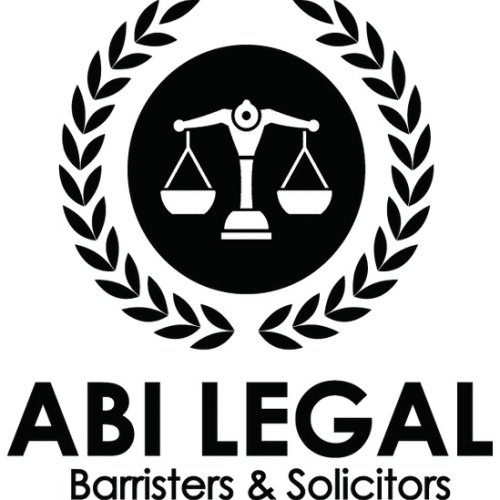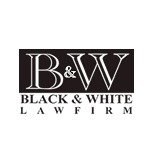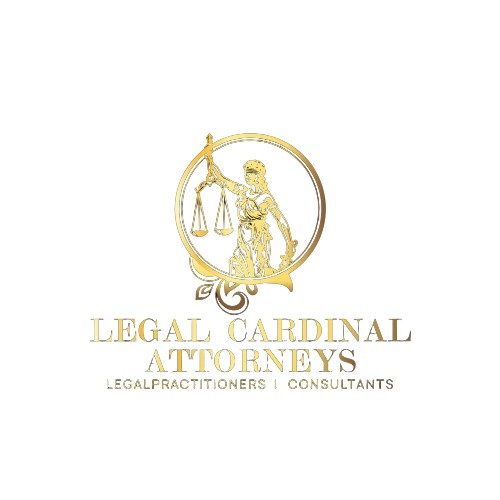Best Landlord & Tenant Lawyers in Ibadan
Share your needs with us, get contacted by law firms.
Free. Takes 2 min.
Free Guide to Hiring a Real Estate Lawyer
List of the best lawyers in Ibadan, Nigeria
Nigeria Landlord & Tenant Legal Questions answered by Lawyers
Browse our 27 legal questions about Landlord & Tenant in Nigeria and read the lawyer answers, or ask your own questions for free.
- About rent increament
- I was given 2 months and 28 days notice of increament of rent , I refused to pay and I was given 7days quit notice , my rent was increased by 50%
-
Lawyer answer by CO-dunni Law Solicitors
Although this increase is unconscionable, the 7days notice is valid if your rent has expired. Unless you have an alternative arrangement for accommodation. I suggest you find go and negotiate with your Landlord.
Read full answer - My house rent is expiring on march 28 next year and my landlord gave me quick notice to vacate the property on march 28 . My question is by Imo state Nigeria law is he not supposed to give me time to vacate to vacate after my rent is due
- My house rent is expiring on march 28 next year and my landlord gave me quick notice to vacate the property on march 28 . My question is by Imo state Nigeria law is he not supposed to give me time to vacate to vacate after my rent is due
-
Lawyer answer by CO-dunni Law Solicitors
There are several gaps to your question, first you did not mention the date on the Notice, another you did not mention the type of tenancy, whether it is a yearly Tenancy or a bi-annual Tenancy. The Notice to Quit...
Read full answer - I moved into a self-contained apartment in October 2024, and I paid one year's rent. My landlord issued a notice to quit to me on 23rd July 2025. What does the law say about the 3-month notice?
- I want to know if I should insist on a six-month notice or if I should leave on or before 23rd October.I moved into a self-contained apartment in October 2024, and I paid one year's rent. My landlord issued a notice to quit to me on 23rd July 2025. What... Read more →
-
Lawyer answer by Remedium Reel Attorneys
What would generally determine whether the 3 months notice is if there's a written agreement between you and the landlord. (1) If the agreement spells out that you're entitled to 3 months notice, it's valid. (2) If the agreement is...
Read full answer
About Landlord & Tenant Law in Ibadan, Nigeria
Landlord & Tenant law in Ibadan, Nigeria governs the rights and obligations of both landlords and tenants in rental agreements. It sets out the legal framework for renting residential and commercial properties. Understanding these laws is crucial for a smooth landlord-tenant relationship and to protect the interests of both parties.
Why You May Need a Lawyer
A lawyer specializing in Landlord & Tenant law can be beneficial in several situations, including:
- Drafting or reviewing rental agreements to ensure they comply with local laws and protect your rights.
- Resolving disputes between landlords and tenants, such as non-payment of rent, property damage, or eviction.
- Understanding your rights and responsibilities as a landlord or tenant in case of lease violations.
- Seeking legal advice on specific situations, such as rent increases, security deposit disputes, or subletting.
Local Laws Overview
Here are some key aspects of local laws that are particularly relevant to Landlord & Tenant in Ibadan, Nigeria:
- Rental Agreement: A written rental agreement is highly recommended, detailing the terms and conditions of the tenancy.
- Security Deposits: Landlords are allowed to collect a security deposit, usually equivalent to a specified number of months' rent. It should be returned to the tenant at the end of the tenancy, subject to any deductions for damages.
- Tenant Rights: Tenants have the right to quiet enjoyment of the property, privacy, and necessary repairs from the landlord.
- Eviction: Landlords must follow specific legal procedures to evict a tenant, including providing written notice and obtaining a court order.
Frequently Asked Questions
1. Can a landlord increase the rent during a lease term?
Unless specified in the rental agreement, a landlord cannot increase the rent during a lease term. However, they can propose a rent increase when renewing or extending the lease.
2. How much notice should a landlord give before evicting a tenant?
A landlord must provide written notice of eviction to the tenant, usually giving a minimum notice period of one month. If the tenant fails to remedy the issue leading to the eviction, the landlord can then proceed with legal action.
3. Can a tenant withhold rent for repairs or maintenance issues?
While tenants have the right to request repairs or maintenance, they generally cannot withhold rent. Instead, they should officially notify the landlord in writing and allow a reasonable timeframe for the repairs to be carried out.
4. How long does it take for an eviction to be finalized?
The duration of the eviction process can vary depending on the circumstances and court availability. Generally, it can take several weeks to a few months to finalize an eviction.
5. Can a tenant sublet the rented property to someone else?
A tenant must obtain the landlord's written consent before subletting the property to another person. Failure to do so may lead to lease violations and potential legal consequences.
Additional Resources
For additional guidance and resources regarding Landlord & Tenant law in Ibadan, Nigeria, consider referring to the following:
- Ibadan Rent Control and Recovery of Residential Premises Law: The local law governing landlord-tenant matters.
- Ibadan Tenancy Tribunal: A governmental body that handles disputes between landlords and tenants.
- Ibadan Chamber of Commerce and Industries: Provides information and support for landlords and tenants regarding commercial rental properties.
Next Steps
If you require legal assistance related to Landlord & Tenant matters in Ibadan, Nigeria, here's what you can do:
- Gather all relevant documentation, including rental agreements, notices, and correspondence.
- Research and consult reputable lawyers specializing in Landlord & Tenant law.
- Schedule a consultation to discuss your specific situation and seek legal advice.
- Follow the guidance provided by your lawyer to resolve any issues or disputes effectively.
- Maintain open communication with your landlord or tenant to preserve a healthy rental relationship.
Lawzana helps you find the best lawyers and law firms in Ibadan through a curated and pre-screened list of qualified legal professionals. Our platform offers rankings and detailed profiles of attorneys and law firms, allowing you to compare based on practice areas, including Landlord & Tenant, experience, and client feedback.
Each profile includes a description of the firm's areas of practice, client reviews, team members and partners, year of establishment, spoken languages, office locations, contact information, social media presence, and any published articles or resources. Most firms on our platform speak English and are experienced in both local and international legal matters.
Get a quote from top-rated law firms in Ibadan, Nigeria — quickly, securely, and without unnecessary hassle.
Disclaimer:
The information provided on this page is for general informational purposes only and does not constitute legal advice. While we strive to ensure the accuracy and relevance of the content, legal information may change over time, and interpretations of the law can vary. You should always consult with a qualified legal professional for advice specific to your situation.
We disclaim all liability for actions taken or not taken based on the content of this page. If you believe any information is incorrect or outdated, please contact us, and we will review and update it where appropriate.

















